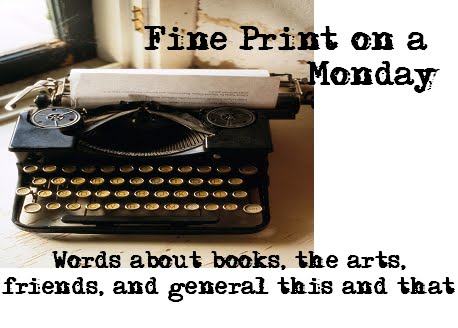My Saturday afternoon was consumed binge reading this book - a book that, by the very nature of its subject and intensity - laughs in the face of an attempted binge. But, my on-line book group committed to this title, and not being one to shirk responsibility, I read. Over a period of three or so weeks, I strolled though 1930's Paris, meeting and reacquainting myself with philosophers and ideas that hadn't been a part of my reality since college. I read slowly, I took notes, I questioned and I tried to recall and to understand. On some level I succeeded. After all, in only three weeks I have made it all the way to page 138. Time to step it up...time to binge.
This was not an enjoyable book for me - more of an awareness of the moving bar of philosophy regularly reminds us to look, listen and evaluate the nooks and crannies of our lives.
Whether we recognize or acknowledge it, we all live by a philosophy, that is until those idea and ideals are challenged by new, eclectic thoughts that reawaken our intellectual curiosity. In 1933, Jean-Paul Sartre was challenged in a Parisian cafe, thus beginning his quest to refine, build upon, and concertize ideas put forth in a way of thinking called "phenomenology." Through endless exploration and experimentation, Sartre defined what we we now identity as existentialism, a philosophy based on freedom,. responsibility and authentically.
Much like the romantic writers, there are dark and light existentialists, and their tendencies become evident through the ways in which the philosophy manifests in their art, music, novels and drama. In Beckett's Waiting for Godot, we meet Didi and Gogo, two bums on a dung pile. They discuss their current situation and agree that they possess total freedom to make choices as they see fit. Accompanying this reality is the sober realization that along with total freedom comes total responsibility. What if they make the wrong choices? What then? The pair seems paralyzed by their freedom even though several opportunities to make a move present themselves. Dark.
But existentialism does not have to be seen as a recipe for a life filled with anguish. In fact, it promotes the joy of individualism, of doing what is wanted, rather than what is expected - as long as there is acceptance of the accompanying responsibility. It acknowledges the difficulty of change while celebrating the ambiguity of life.
Did I like this book? I can't say. The title is a little goofy and gives the impression of a light read, but that is not the case. I was also troubled by author interjection. I much preferred the passages which simply educated me on the history of existentialism, the interaction of various thinkers, and the context of the times. I accepted that Bakewell is so entrenched and excited about her subject that she could not stop herself from putting things into a "me" perspective at times.
I would not suggest binge reading. The meaning was clearer when I took the time to meander though the first couple chapters...but alas, other books are screaming at me and so the binging began.
Thanks for stopping by.

